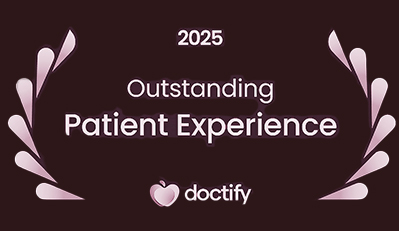
What are the symptoms of cataracts?
Cataracts are one of the most common eye conditions in the UK and worldwide. They develop slowly, often without pain, but they can have a big impact on your vision and your quality of life.
Because they tend to creep up gradually, many people don’t realise how much their sight has changed until everyday tasks become difficult. Recognising the symptoms early can help you seek treatment before your vision affects your independence.
In this blog, we’ll explain the main symptoms of cataracts, how they progress, and what to do if you think you might have them.
What is a cataract?
A cataract is the clouding of the eye’s natural lens. The lens normally helps focus light onto the retina, allowing you to see clearly. When it becomes cloudy, light is scattered instead of passing through smoothly.
This leads to blurred or distorted vision, similar to looking through a foggy window. Cataracts can affect one or both eyes, and while they don’t spread from eye to eye, they often develop in both over time.
The early symptoms of cataracts
Cataracts usually develop slowly, so the first signs may be subtle. Common early symptoms include:
1. Blurred or cloudy vision
Your sight may feel misty, hazy, or less sharp than before. Text on a page or screen may seem harder to read, and you may struggle to see fine details.
2. Increased sensitivity to light
Bright lights can feel uncomfortable. You may notice glare from headlights or sunlight that didn’t bother you before.
3. Faded or yellowing colours
Colours may lose their vibrancy. Whites may appear yellow or brownish, and reds and blues may seem duller.
4. Difficulty seeing at night
Night driving becomes harder as your vision dims. Streetlights and headlights may create more glare or halos.
5. Double vision in one eye
Some people see “ghost images” or overlapping vision in a single eye.
6. Frequent changes in glasses prescriptions
If your optician keeps adjusting your prescription but you still struggle to see clearly, cataracts may be the cause.
How do cataracts progress?
At first, you may only notice slight blurriness or a need for stronger lighting when reading. Over time, symptoms usually become more obvious:
- Reading glasses no longer help as much.
- Everyday tasks like cooking, shopping, or watching TV feel more difficult.
- Driving, especially at night, becomes less safe.
- Your overall quality of life can decline as independence is affected.
Without treatment, cataracts can eventually cause severe vision loss or even blindness. The good news is that surgery is highly effective in restoring clear sight.
Do cataracts cause pain?
No. Cataracts are not painful. The main symptom is gradual loss of vision clarity. If you experience sudden eye pain, flashes of light, or a rapid change in vision, it’s important to seek urgent medical care, as these may be signs of a different eye condition.
Who is at risk of developing cataracts?
The biggest risk factor is age. Most people will develop some level of cataracts after 60. Other risk factors include:
- Family history of cataracts
- Diabetes
- Smoking
- Excess UV exposure from sunlight
- Long-term use of steroid medication
- Eye injuries or previous eye surgery
How are cataracts diagnosed?
If you think you have cataract symptoms, the next step is a comprehensive eye exam. This includes:
- Vision testing (how well you can see letters on a chart)
- Bright light testing to check glare sensitivity
- A slit-lamp exam to look closely at your lens
- Scans and imaging to confirm the diagnosis and rule out other eye problems
At Mitry Vision, we use advanced diagnostics to give a complete picture of your eye health and confirm whether cataracts are the cause of your symptoms.
Treatment for cataracts
In the early stages, stronger glasses, brighter lighting, or magnifying lenses may help. But cataracts don’t go away on their own and usually continue to worsen.
The only permanent treatment is cataract surgery. This procedure removes the cloudy lens and replaces it with a clear artificial one. Surgery is quick, safe, and effective, with millions of procedures carried out worldwide each year.
Private cataract surgery also allows you to choose from advanced lens options, including premium lenses that reduce or eliminate the need for glasses.
When should you consider surgery?
You don’t have to wait until you can’t see at all. Most people choose cataract surgery when their vision begins to affect:
- Driving
- Work
- Hobbies like reading, golf, or sewing
- Day-to-day independence
At Mitry Vision, your consultant will recommend surgery at the right time for you, based on both your symptoms and your lifestyle.
Summary
Cataracts develop slowly, but their symptoms can have a big impact on daily life. The main signs include blurred vision, glare from lights, faded colours, poor night vision, and frequent changes in glasses prescriptions.
If you’ve noticed any of these, it’s time to get your eyes checked. Cataract surgery can restore clear vision, reduce dependence on glasses, and give you back your independence.
Think you may have cataracts? Take our free self-test today to find out if you’re suitable for treatment.
Find out if you are suitable for vision correction
Not everyone is eligible for vision correction surgery.
Find out if you could benefit from this life changing surgery by taking the quick self-suitability quiz below:




